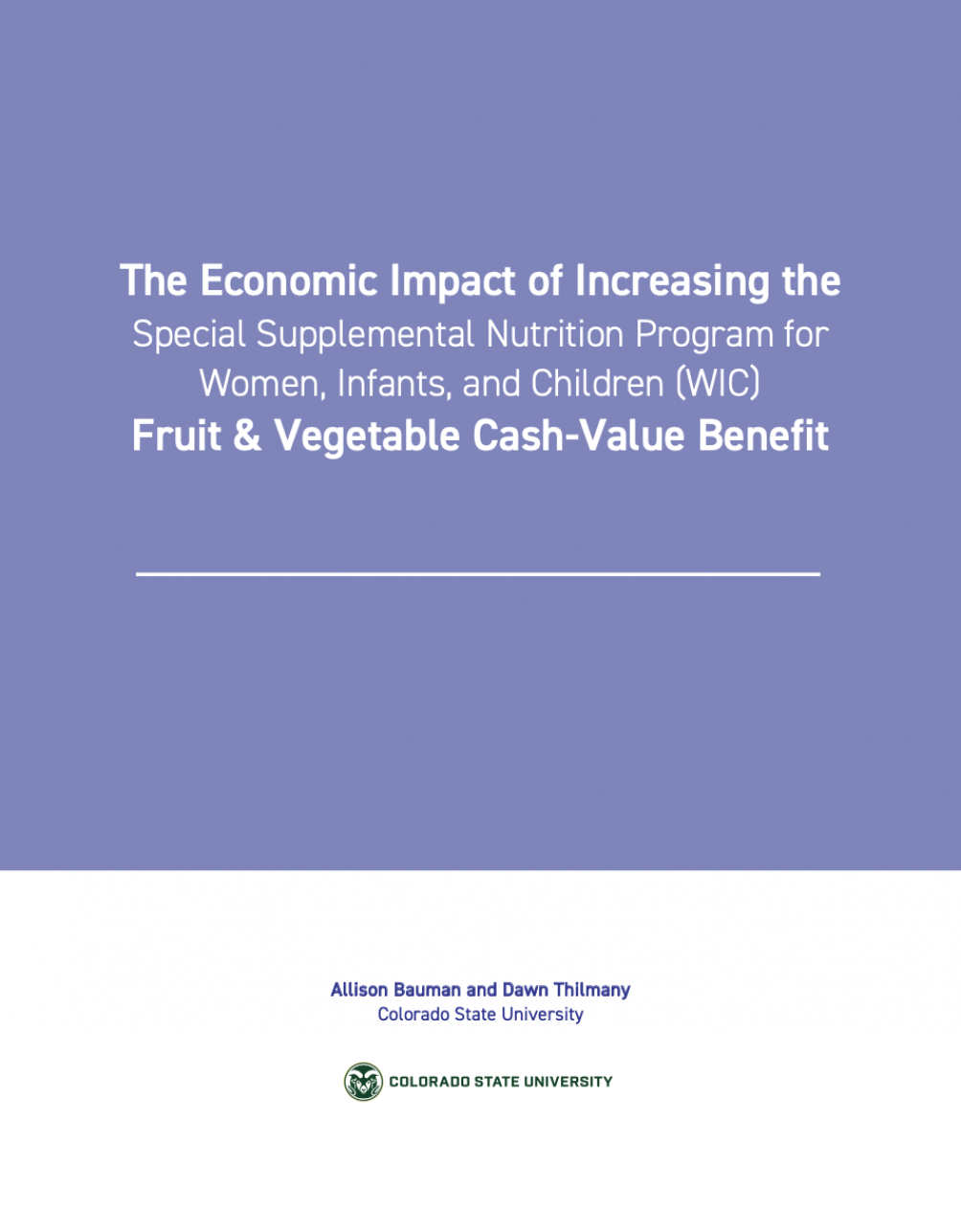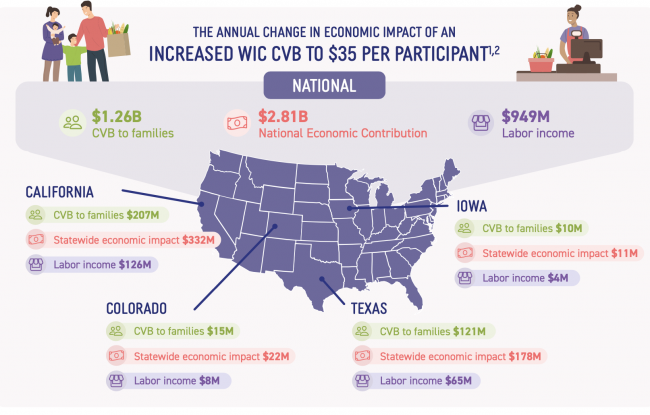WIC Economic Impact Study
The Economic Impact of Increasing the Special Supplemental Nutrition Program for Women, Infants, and Children (WIC) Fruit & Vegetable Cash-Value Benefit
Study Summary:
Food insecurity, nutrition insecurity, and hunger are prominent issues impacting a growing number of Americans, especially those that are low-income. Beyond hunger, many lack consistent access to nutrient-rich foods, such as fruits and vegetables, due to budget limitations, high cost, and limited availability at places where they shop. Healthy eating, especially during pregnancy and early childhood, is particularly important as good nutrition plays a significant role in growth and development.
To promote healthy eating, the United States Department of Agriculture (USDA) provides a fruit and vegetable cash-value benefit (CVB) to low-income pregnant, postpartum, and breastfeeding women and families with children up to age 5 as part of the Special Supplemental Nutrition Program for Women, Infants, and Children (WIC). The current CVB is $9/month per child and $11/month per adult. While this benefit does expand access to fruits and vegetables, the current amount is inadequate to meet the dietary needs of its recipients.
The American Rescue Plan Act of 2021 has offered states and tribal nations the option to temporarily increase the CVB to $35 per WIC participant (child and adult) from June to September 2021. However, this increase is only temporary and is set to expire on September 30, 2021. Many food and health organizations such as the National WIC Association (NWA) support sustained increases in the WIC CVB. A sustained increase in the WIC CVB will not only ensure low-income families have increased access to healthy food, but it will also contribute to positive economic implications both state and nationwide.
In this report, we estimate the annual economic impact to the economies of California, Colorado, Iowa, and Texas and the economic contribution to the U.S. economy if the monthly WIC fruit and vegetable cash-value benefits were to increase to $35/month per WIC participant (child and adult).
The research highlighted is based upon analysis conducted by a research scientist from Colorado State University, in partnership with Vouchers 4 Veggies and UCSF Center for Vulnerable Populations. This report was modeled on The Economic Contributions of Healthy Food Incentives report published by SPUR and Fair Food Network.
For questions, please email eatsf@ucsf.edu.





